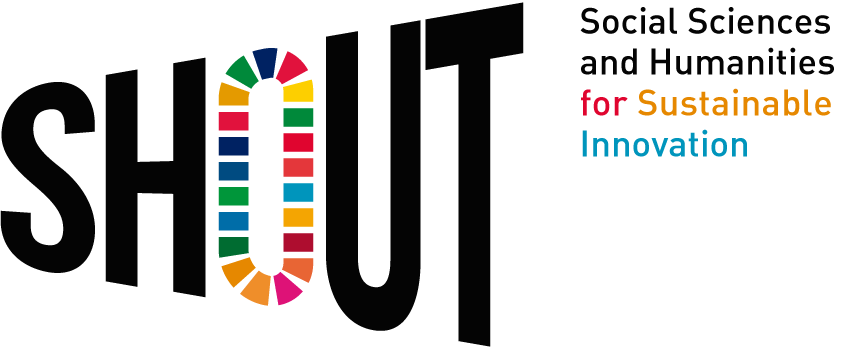The SSH and the labour market of the future
„Labor markets continue to undergo extensive transformation. Globalization, digitalization and technological developments remain major drivers of change and, while presenting significant benefits, these changes may also pose significant challenges to labor markets, societies and policy makers alike, particularly when coupled with the impact of COVID-19 on workers and employers across the world. These challenges have become even more apparent and should be addressed to enhance access to opportunities for all and make our societies more inclusive. We need innovative and timely measures to help policy makers meet these challenges, as well as the longer-term challenges faced by youth, women, and vulnerable and excluded groups in general, including in the recovery from the economic crisis caused by the pandemic.”
Read this:
It is not important just to be competitive – It is important to have the right competencies (and skills)!
„Skills stability” is a thing of the past…….
……adaptable and open skills are required: analytical thinking and active learning, but also creativity, originality and initiative, critical thinking, persuasion and negotiation; attention to detail, resilience, flexibility and complex problem solving.
We will all need to become lifelong learners
Read this:
https://www.weforum.org/agenda/2018/09/future-of-jobs-2018-things-to-know/
„The twenty-first century labor market is expected to demand a more skilled workforce whose members are adaptable throughout their career course to changing technology, product demand, and global competition, along with a lesser-skilled services-oriented workforce” (Karoly; Panis, 2004).
- Industry specific skills and knowledge – the knowledge and skills required for a specific job – they do not allow us to change jobs
- Generic skills and knowledge – the knowledge and skills needed for every job – the knowledge and skills that are useful for every job – they allow us to change jobs
The top 10 job skills of 2025
- Analytical thinking and innovation
- Active learning and learning strategy
- Complex problem-solving
- Critical thinking and analysis
- Creativity, originality, initiative
- Leadership and social influence
- Technology use, monitoring, controle
- Technology design and programming
- Resilience, stress tolerance and ideation
- Reasoning, problem-solving and ideation
Top 10 skills of 2020
1. Complex Problem Solving
2. Critical Thinking
3. Creativity
4. People Management
5. Coordinating With Others
6. Emotional Intelligence
7. Judgement And Decision Making
8. Service Orientation
9. Negotiation
10. Cognitive Flexibility
Top 10 skills of 2015
1. Complex Problem Solving
2. Coordinating With Other
3. People Management
4. Critical Thinking
5. Negotiation
6. Quality Control
7. Service Orientation
8. Judgement And Decision Making
9. Active listening
10. Creativity
Read this:
Comparison:
Skills of 2025 – include specific knowledge and skills:
- technology use, monitoring, controle
- technology design and programming
Skills of 2025 – include specific attitude towards learning:
- active learning and learning strategy
Skills of 2025 – include only one skill relating to cooperation:
- leadership and social influence
Skills of 2025 – five out of ten relate to problem-solving:
- analytical thinking and innovation
- complex problem-solving
- critical thinking and analysis
- creativity, originality, initiative
- reasoning, problem-solving and ideation
„Employers want students to possess analytical reasoning/thinking skills — meaning they want to hire someone who is good at breaking down problems into smaller parts to find solutions.
If a student is analytical, you are good at taking a problem or task and breaking it down into smaller elements in to solve the problem or complete the task.”
Managers with excellent analytical reasoning abilities are considered good at, “evaluating problems, analyzing them from more than one angle and finding a solution that works best in the given circumstances”.
A person with good analytical reasoning and pattern recognition skills can see trends in a problem much easier than anyone else.” (https://www.radford.edu/content/cobe/innovation-analytics/analytics/career-prep/report-e.html)
Read this:
https://www.thebalancecareers.com/analytical-skills-list-2063729
Analytical thinking and innovation
SDGs 2030 – and business
„Investment can help raise standards of living through job creation, skills and technology development, and distribution of wealth. Achieving these impacts, however, depends on the quality of the investment as much as the quantity. Irresponsible business practices not only erode the investment and business environment; they can result in economic loss, environmental degradation, poor labour conditions, and in the most serious of cases, injury and loss of human life. Responsible business conduct principles and standards emphasise the integration of environmental and social concerns within core business operations (OECD, 2016).
What is responsible business or corporate social responsibility?
- is one that has a positive impact on the society and the environment in which it operates.
“Businesses already have a framework in the form of the UN Guiding Principles on Business and Human Rights, and a timetable in the form of the 2030 Agenda for Sustainable Development. There is no more crucial way for businesses to contribute than to ensure respect for human rights throughout their supply chains at every step of their business operations” (Responsible business conduct as a cornerstone of the 2030 agenda, 2019).
Responsible business conduct can help achieve the Sustainable Development Goals
What is responsible business or corporate social responsibility?
- is one that has a positive impact on the society and the environment in which it operates.
- In 1953, Howard Bowen, an American economist, published a book, ‘Social Responsibilities of the Businessman’.
- Corporate Social Responsibility – affects racial and gender equality; but also promotes environmental awareness.
„Today there is a foundational understanding that enacting corporate social responsibility policies is not only a nicety aimed to present an attractive brand to the consumer, but it also has the potential to contribute alongside governments and NGOs to address long-standing global issues.”
